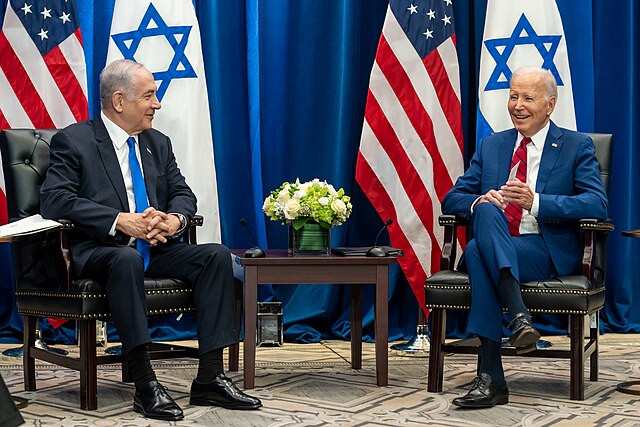President Joe Biden is set to speak with Israeli Prime Minister Benjamin Netanyahu, marking their first conversation since August, as Israel intensifies its military operations against Hezbollah in Lebanon and weighs responses to Iran's recent ballistic missile attack. According to multiple sources familiar with the matter, the call is expected to focus on how Israel plans to handle the growing threat from Iran-backed forces in the region, potentially widening the ongoing conflict beyond Gaza.
The scheduled discussion comes amid a series of Israeli airstrikes in the southern Beirut suburb of Dahieh, a known Hezbollah stronghold. The Israeli Air Force confirmed targeting a Hezbollah weapons production facility and intelligence headquarters in the area. Simultaneously, the Israel Defense Forces (IDF) have increased their ground presence in southern Lebanon, which is home to the militant group.
Netanyahu warned of a prolonged conflict if Hezbollah's influence isn't curtailed, stating, "If the people of Lebanon fail to reject the Iran-backed group, it will mean a long war that will lead to destruction and suffering like we see in Gaza." His remarks come as the IDF ramps up operations, expanding its offensive in northern Gaza, which has resulted in significant casualties.
The conflict's toll has been severe, with more than 42,000 reported deaths in Gaza, according to the health ministry in the Hamas-run territory. Recent airstrikes near the city of Jabalia in northern Gaza killed at least 45 people, and thousands of civilians have been trapped amid escalating violence. "It's like hell. We can't get out," said Mohamed Awda, a local resident in Jabalia, to the Associated Press, as explosions echoed in the background during his interview.
Meanwhile, Hezbollah's attacks on Israel continue unabated. The group reportedly launched 180 projectiles into Israeli territory on Tuesday alone, prompting thousands in northern Israel to seek refuge in bomb shelters. Hezbollah's barrage follows a year-long campaign in which the group fired more than 10,000 rockets at Israel, mostly intercepted by Israeli defenses.
As the situation in Lebanon escalates, Iran's role as a regional agitator has drawn international concern. The Israeli military's response to Iran's recent missile attack, which the U.S. helped repel, has led to strategic debates within Israel's leadership about how to proceed. While some advocate a more symbolic strike akin to previous Israeli responses, others call for a more substantial offensive against Iranian assets, including oil facilities.
Since October, Israel has also launched a campaign targeting Hezbollah's infrastructure and leadership in Lebanon. Airstrikes in recent weeks reportedly killed the group's leader, Hassan Nasrallah, and weakened its command structure. Thousands of explosives hidden in pagers and communication devices have also detonated, resulting in significant casualties and widespread destruction, with Israel widely believed to be behind the attack.
The conflict has forced many to flee their homes, as more than 100 towns in southern Lebanon have been evacuated under orders from the IDF. Lebanese government figures estimate that over 1,000 people have died in the country since Israeli operations began.
Adding to the complexities of the situation, the U.S. has maintained an increased military presence in the region to support its ally and protect American interests. Washington has been urging Israeli officials to maintain close communication with the U.S. to ensure that American troops are not inadvertently endangered. "We need to be kept in the loop on their decision-making to safeguard our forces," a U.S. defense official noted.






